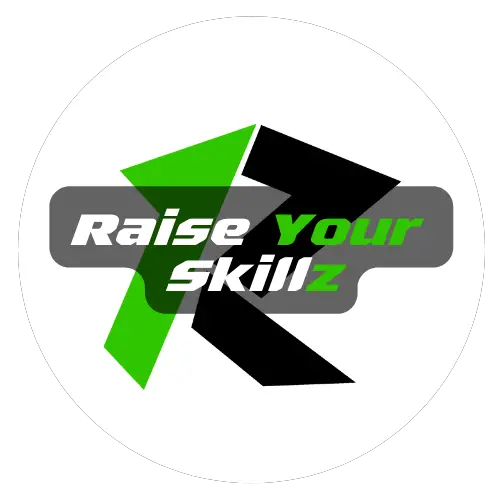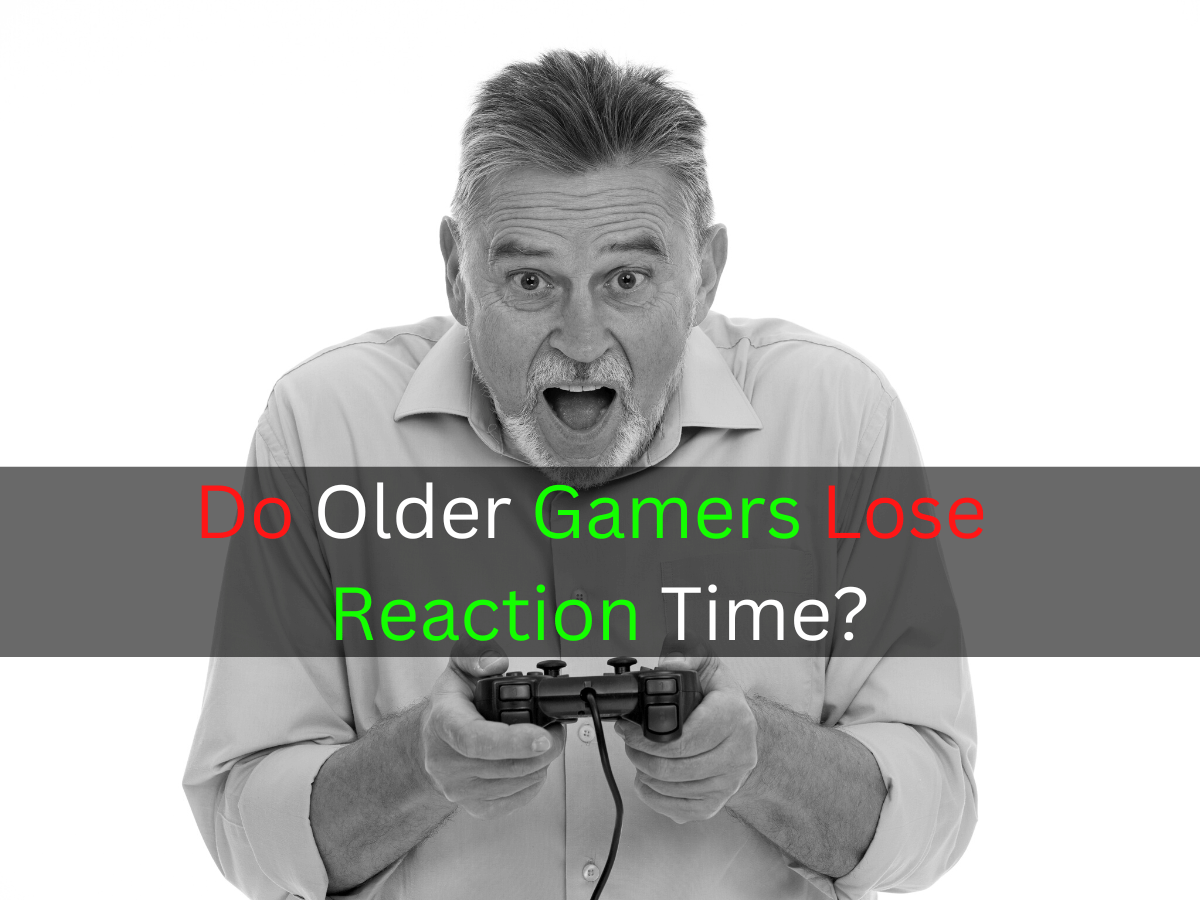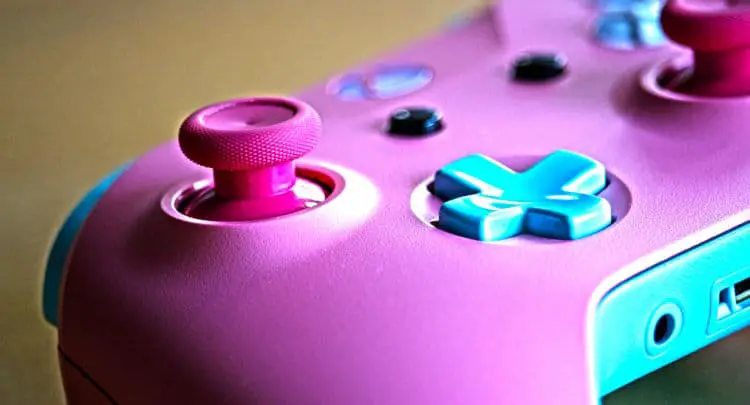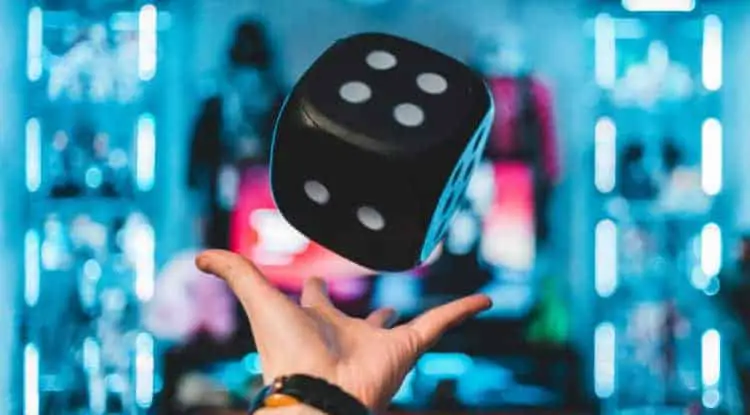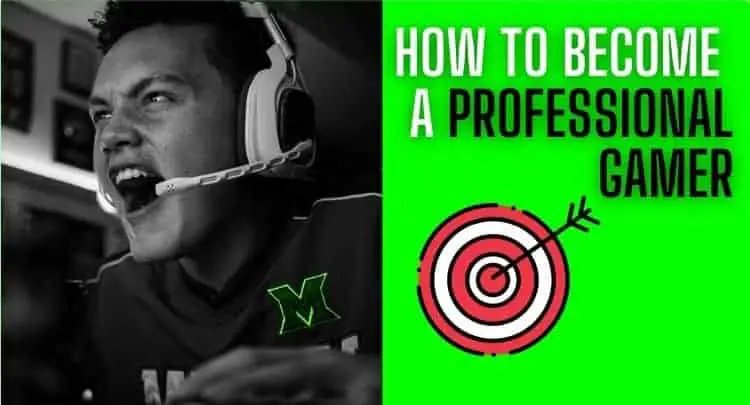Masakari and I have each been playing for almost 35 years. We are getting older – no surprise. We asked ourselves, what does that do to our reaction speed?
A study from 2014 showed that gamers’ reaction speed is at its zenith at the age of 24 years. Another study from the year 2008 concludes that the reaction speed only decreases from 39 years. From this point on, nerve cells gradually lose an insulating layer that serves the faultless and rapid communication of nerve signals.
Therefore, it is not sufficiently proven when the reaction speed starts to decrease. However, it is undisputed that the reaction time decreases at some point.
Now, before you throw in the towel, let me put your mind at ease: The study of Starcraft 2 (source here), as well as the study of general brain function (source here), have strong weaknesses because they didn’t even consider nearly all factors that can influence your reaction speed in shooters (and in other games).
Let’s put that in some order.
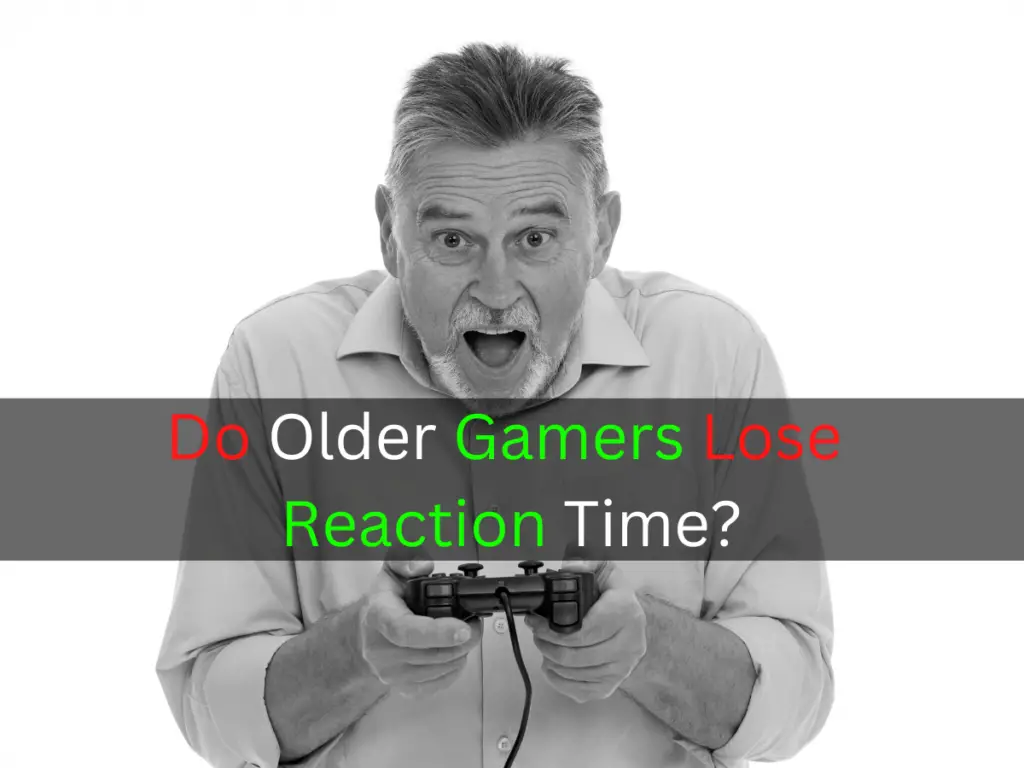
Note: This article was written in English. Translations into other languages may not provide the same linguistic quality. We apologize for grammatical and semantic errors.
Definition of Reaction Speed
The studies define their object of investigation (reactions) in different ways. For example, suppose the response to a stimulus is measured directly in the brain. In that case, one has the net reaction speed, but this has little to do with the processes in gaming, where, for example, the visual stimulus is picked up by the eye, goes to the brain, is processed, and then has to be converted into muscle movements. This much longer path can, of course, be influenced by many more factors.
The study of Starcraft 2 focuses primarily on hand-eye coordination. The focus was on visual reaction time.
This might be a valid measuring factor for a strategy game, where hundreds of keystrokes have to be performed every minute. But in a shooter, for example, the mouse movement’s accuracy also comes into play. It doesn’t help to fire faster than the opponent. You must also place the crosshair accurately.
Another dimension that these studies have not considered is the response time to audio.
However, let’s look at a few factors that always “play along” with gaming…
Honest recommendation: You have the skill, but your mouse doesn't support your aiming perfectly? Never struggle with your mouse grip again. Masakari and most pros rely on the Logitech G Pro X Superlight. See for yourself with this honest review written by Masakari or check out the technical details on Amazon right now. A gaming mouse that fits you makes a significant difference!
7+ Factors That Influence Your Reactions in Gaming
Technology
The technique doesn’t really “help” get a faster reaction time. But compared to other players, the technique can give you an advantage in the blink of an eye. Input lag, FPS, graphics card post-processing, mouse and keyboard reaction, G-Sync, internet connection, etc. – In Pro-Gaming, 20 ms are already worlds apart.
Training & Muscle Memory
Your muscles in your arm and hand will remember your movement after enough repetitions. The interaction between many muscles is eventually so perfected that the initial nerve signal triggers an automatic chain of actions. Of course, this happens much faster than when the muscles have to perform a specific movement for the very first time.
Remember the first time you got on a bike? Shaky business, right? After enough training, your muscles “know” how to work as soon as you get on the bike. It’s similar to your movements in gaming. The level of training massively determines the current possible reaction time.
Psychology
Your mind is elsewhere, and you can’t focus on the game optimally. Even the fastest gamer becomes a lame duck if the right mindset is missing in the match. Often the course of the game influences you positively or negatively. A lost round makes you brood or feel anger (yourself). Sometimes an unexpected clutch brings you out of lethargy, and the focus is back. The psyche is a factor that players very often neglect.
Physis
Tiredness, pain, illness – sometimes you overdo your physical abilities. As we explained in the article “Do Energy Drinks Boost Gaming Skills? (Pro Gamer Answer)“, boosting your skillz can also give you wings to your reaction speed, at least for a short time, even if negative effects occur very quickly.
Various Stimuli
When you play a shooter, you probably have a headset on or play with in-ears – in any case, the sound is on. Limiting hand-eye coordination to the visual stimulus only displaces the fact that experienced players very often trust their hearing. They do not react when the first pixel is visible to the opponent but already when they hear a specific volume of the approaching opponent. Thus, the auditory “prediction” enables a quicker reaction than relying only on the visual stimulus.
The average reaction time of a human being to a visual stimulus is 200ms. The fastest response times ever measured by gamers were 100-120ms. For audio stimuli, the reaction time is about 30ms less than for visual stimuli. It is also interesting to note that a visual stimulation takes on average 30ms to arrive in the brain (cortex) from the eye, while an audio stimulus takes only 9ms.
Please keep in mind with these statements that we talk about one stimulus. If a lot is happening on your screen, your brain needs much longer for an adequate reaction.
Another important piece of information: Several studies (such as this one from 2015) have shown that women’s reaction times are currently slower than men’s on average. The good news is that the gap is narrowing! Since more and more women are playing video games or other reaction-driven sports, the average is getting closer to men. Means derived: Female gamers have the same reaction time as male gamers.
We’ve already addressed the gender gap issue in this article – perhaps worth a look.
Game Genre
Starcraft 2 is a real-time strategy game. Here completely different motion sequences come into play than in 3D shooters. The situation is even different in sports games. The only comparable movement is clicking the mouse button when a certain trigger (e.g., visual stimulus) is active. Besides, a movement immediately changes in its execution in the respective genre.
In Starcraft 2, for example, it is sufficient to quickly click on a unit by clicking on any pixel of the unit. In a shooter, the crosshair does not have to be placed anywhere on the opponent but inside the hitbox and there on the head if possible.
A small but important difference.
In sports games, it is essential to press in time and let go (e.g., header in FIFA). So again, a completely different motion sequence.
Experience
Today’s video games are very complex, very fast, and individual games can run millions of times differently. If you compare an old game like Tetris with a current game like Valorant, it quickly becomes clear that the experience factor plays an increasingly important role. Of course, an 18-year-old can have more experience in a game than a 35-year-old, but experience also comes from insights outside the game.
Let me give you an example: The 18-year-old is the most responsive player in his game and is coming to an offline final for the first time. The inner excitement, the new auditory stimuli in the arena (clapping, cheering, background noise), and the equipment provided naturally hurt his performance. The 35-year-old has experienced all these many times before, feels at home, and is looking forward to the final.
Who do you think will be the champion?
A quicker reaction does not always lead to the best decision. Experience can also give you a massive advantage here.
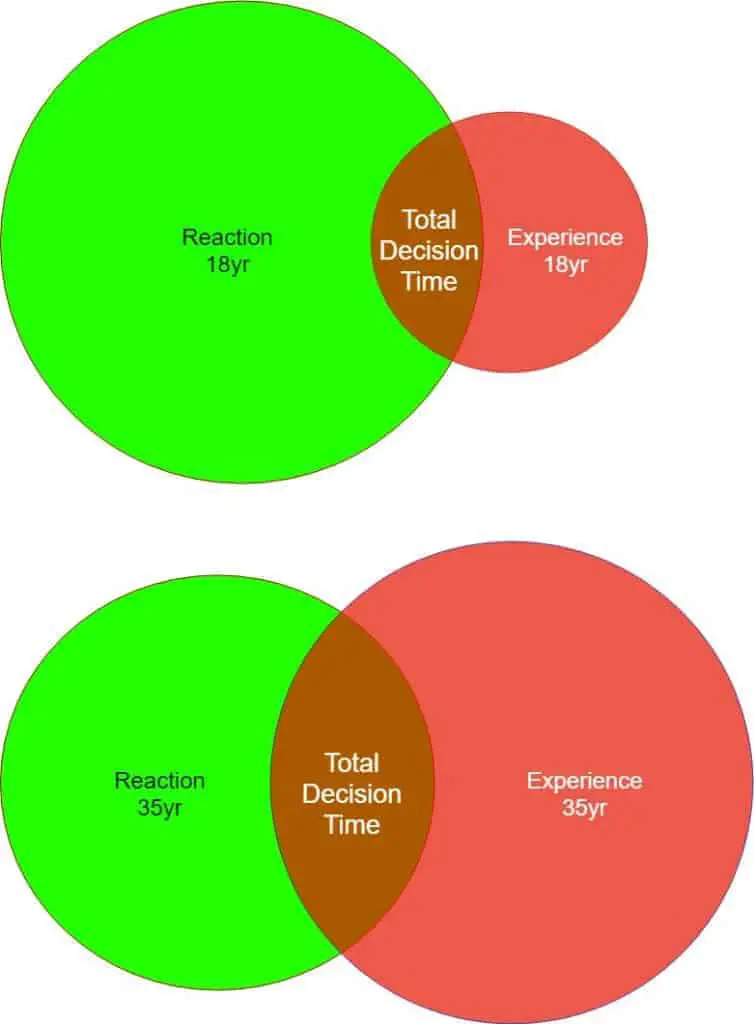
With this graph I want to show you that an 18-year-old player can react a bit faster than an 35-year-old, but this loss of time in older players can be compensated mainly by the inclusion of experience.
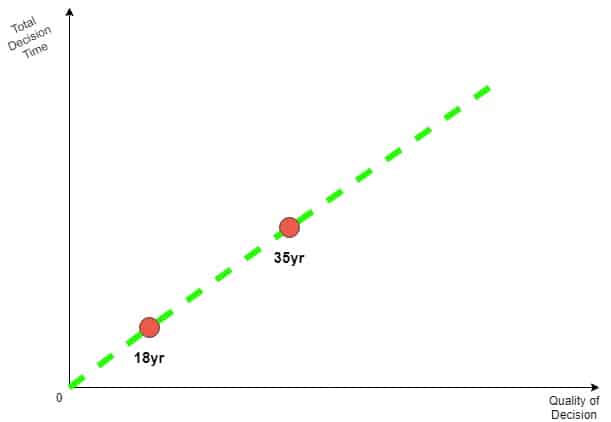
In other words, we can see here that the 18-year-old gamer reacts much faster, but the quality of the decision is much higher for the 35-year-old gamer. Depending on the game situation, both results can be advantageous or disadvantageous.
The Practice in Pro Gaming
Most pro gamers indeed range between 18 and 26 years of age. But there are more and more up (and down) swings. For example, the Japanese Naoto “Sakonoko” Sako, at 40 years of age, took 3rd place in the Evolution Championship Series 2020.
Steeve “Ozstrik3r” Flavigni won several more tournaments together with his CSGO team at the age of 34.
Wiktor “TaZ” Wojtas can also easily keep up with CSGO with 34 years. Together with his mate Filip “NEO” Kubski, 33 years old, he has celebrated countless successes in the past years.
Millions of mouse clicks and arm movements naturally have an effect as we age. 20 years ago, players did not pay attention to their bodies or diets. The younger generations of players are logically more malleable in this respect. Younger players also often have a larger fan base and greater media appeal for Esport organizations.
There are a few more reasons why 90% of all pro gamers are between 18-26 years old, but there are no reasons why an older or younger player cannot achieve the same performance.
In a youtube video (see below), some CSGO pro players are analyzed. The best measurement is 104ms. Others go up to 300ms. In the end, this example only shows that the reaction time is secondary for a successful CSGO career and many other factors play a role.
Measure and Train your Reactions
For you, it is certainly interesting how you can improve your reaction speed now. There is no explicit exercise. As described above, there are game-specific movements and different stimuli related to your reaction time.
If you play a shooter and he brings along a kind of shooting ranch (i.e., a training possibility for weapons, ranges, and moving targets), then this is the first possibility you should use daily.
Further possibilities to train are Aimtrainer for Shooter. Here above all, the precision is also increased.
Reaction games such as osu! (click here to go to the publisher’s website) train your reflexes in complex movements and “train” your muscle memory.
To measure your reaction time explicitly is very easy outside of a game. For example, you can test your reaction to a visual stimulus online (link to a test).
However, as described above, this has very little meaning about the game’s actual reaction time and the quality of the result.
Conclusion
The theory is sometimes cruel. At >24 years of age, you are supposedly old news in Starcraft 2. But practice shows us a different picture. Some players are in their thirties at the zenith.
The more experience a player has, the more it gets involved in the reaction speed. Of course, this increases the pure decision time, but the quality of the decisions benefits from it.
There are game situations where you beat an opponent by pure reaction time. If both have pulled the crosshair on the opponent simultaneously, the one who pulls the trigger faster wins. Logically. In other situations, several reaction variants’ inclusion leads to superiority over the quick reaction.
Also, the reaction time does not simply influence the visual stimulus. For example, a traffic light on green, step on the gas – that’s very simple.
The studies mentioned above make it a little too easy at this point. I’ve given you enough other factors above that strongly influence your reaction time at the measurement time.
If you are not the fastest under the sun, then there is a notable factor that can most clearly compensate for reaction time: experience.
Of course, many other factors also play a role, such as the number of stimuli that the brain has to work out at once or whether the muscles are ready for an impulse (keyword: warm-up training).
Speaking of age, did you know at what age pro gamers make the most money? The answer is here.
If you have a question about the post or pro gaming in general, write to us: contact@raiseyourskillz.com.
If you want to get more exciting information about becoming a Pro Gamer and what relates to Pro Gaming, subscribe to our newsletter here.
GL & HF! Flashback out.
